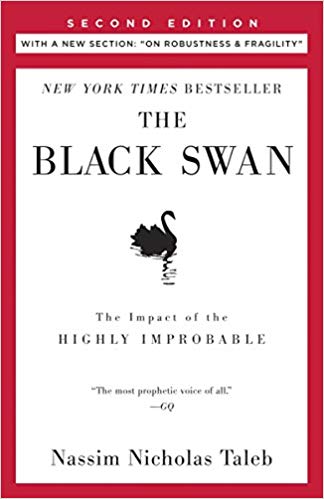

This article is an excerpt from the Shortform summary of "The Black Swan" by Nassim Taleb. Shortform has the world's best summaries of books you should be reading.
Like this article? Sign up for a free trial here .
What is an example of a weak inductive argument? Why are so many inductive arguments weak?
We’ll cover some famously weak inductive arguments and explore two ways to be a better, more logical thinker.
Weak Inductive Arguments: Don’t Be a Turkey
Picture a turkey cared for by humans. It has been fed every day for its entire life by the same humans, and so it has come to believe the world works in a certain, predictable, and advantageous way. And it does…until the day before Thanksgiving.
This is a weak inductive argument. Made famous by British philosopher Bertrand Russell (though, in his telling, the unlucky bird was a chicken), this story illustrates the problem with inductive reasoning (the derivation of general rules from specific instances). With certain phenomena—marketing strategy, stock prices, record sales—a pattern in the past is no guarantee of a pattern in the future.
In Taleb’s words, the turkey was a sucker—it had full faith that the events of the past accurately indicated the future. Instead, it was hit with a Black Swan, an event that completely upends the pattern of the past. This is the problem with weak inductive arguments. (It’s worth noting that the problem of inductive reasoning is the problem of Black Swans: Black Swans are possible because we lend too much weight to past experience.)
Another weak inductive argument example, this time from the world of finance, concerns the hedge fund Amaranth (ironically named after a flower that’s “immortal”), which incurred one of the steepest losses in trading history: $7 billion in less than a week. Just days before the company went into tailspin, Amaranth had reminded its investors that the firm employed twelve risk managers to keep losses to a minimum. The problem was that these risk managers—or suckers—based their models on the market’s past performance.
In order not to be suckers and make weak inductive arguments, we must (1) cultivate an “empirical skepticism”—that is, a skepticism steeped in fact and observation—and (2) remain vigilant against the innately human tendencies that leave us vulnerable to Black Swans.
The problem of induction illustrated by the turkey story has been noted by many well-known philosophers, including the great skeptic David Hume. But induction’s shortcomings were noted even in antiquity.
Weak Inductive Argument Example: Black Swans
The Black Swan is named after a classic error of induction wherein an observer assumes that because all the swans he’s seen are white, all swans must be white. This is a weak inductive argument example.
For millennia, it was universally accepted that all swans were white. In fact, this truth was so incontrovertible that logicians would often use it to illustrate the process of deductive reasoning. That classic deduction went like this:
- All swans are white
- The bird is a swan
- The bird is white
But it’s actually an example of a weak inductive argument. In 1697, Willem de Vlamingh, a Dutch explorer, discovered black swans while on a rescue mission in Australia—and, in an instant, a universal, incontrovertible truth was shown to be anything but.
After Vlamingh’s discovery, philosophers used the term “black swan” to describe a seeming logical impossibility that could very well end up being possible.
Combatting Weak Inductive Arguments
Solution #1: Favor System 2 over System 1
Empirical psychologists like Nobel Laureate Daniel Kahneman and Amos Tversky have distinguished two types of thinking in human beings: “System 1” thinking, which is experiential, kneejerk, intuitive, and effortless; and “System 2” thinking, which is cogitative, slow, and effortful.
System 1 thinking is what kicks in when we immediately situate an event in a particular framework or pattern. For example, when we hear “no evidence of cancer” and think “evidence of no cancer,” we’re receiving the information using our System 1 resources.
When faced with new information, we have to make a concerted effort to engage System 2 thinking—to pause and reason about the real significance of the information. This can keep us from making weak inductive arguments.
Solution #2: Favor Experiments Over Stories
Rather than trust in “expert” analyses or attempt to extrapolate cause-and-effect narratives from newspapers—materials that are typically based on inductive reasoning—we should seek out empirical experimental evidence (for example, studies conducted by empirical psychologists like Kahneman and Tversky).
———End of Preview———

Like what you just read? Read the rest of the world's best summary of "Black Swan" at Shortform . Learn the book's critical concepts in 20 minutes or less .
Here's what you'll find in our full Black Swan summary :
- Why world-changing events are unpredictable, and how to deal with them
- Why you can't trust experts, especially the confident ones
- The best investment strategy to take advantage of black swants






